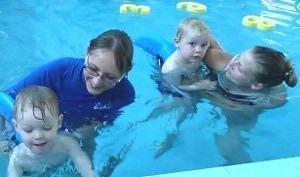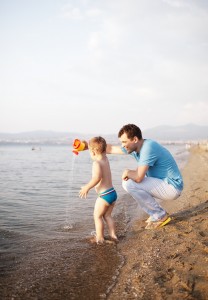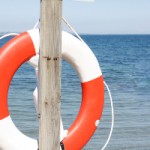Can you still remember your first swimming lessons?
Good or bad, swimming lessons can leave a lasting impression on a child. Are you planning your child’s first swimming lesson? If so, here are a few ways parents can make sure they have chosen a quality swim school.
Great swimming lessons can mean a lifetime of fun in the water!
A swimmer’s first lesson should be a fun, enjoyable and active experience. Everyone is apprehensive at the start of a new term and with an excellent teacher, a swimmer will be made of feel comfortable from the very beginning.
So how do you know if your child’s receiving quality teaching?
Here’s an easy way to find out…
You measure success by the happiness of the swimmers in the class. Look at the other swimmers in the group – are they all quiet and miserable or are they excited, bubbly and enthusiastic? You’ll quickly have your answer.
Children are more alert and focused in fun swimming lessons which engage their enthusiasm and allow them to discover the water during play.
The key skills
The beginners’ lessons are all about these key skills and they are all interlinked:
Mobility – how the swimmers move around in the water, do they cling to the side or paddle boldly into the middle?
Water confidence – Do the swimmers cry out or flinch when they are splashed, can they put their faces in the water?
Buoyancy – Can the swimmers trust the water to support their weight? Do they hold themselves rigid like statues or are they relaxed to the point of falling asleep?
From the first lesson, your teacher begins to build up a series of good experiences around these skills. Each swimmer will feel engaged in the sessions and step-by-step, they learn the techniques necessary for a lifetime of wonderful swimming.
Needs and fears of each swimmer

Your teacher will understand the needs and fears of each swimmer. They will be able to tell when someone is apprehensive about an activity and they will encourage and reassure them. An excellent teacher will have many activities up their sleeves, so if one approach doesn’t work, they will try something else to engage the swimmer.
This stage is the most rewarding for your teacher – to make that breakthrough and see the swimmers achieve so much, it’s what swimming teaching is all about!
What parents can do
Be prepared…
These beginning stages cannot be rushed. It’s so important that swimmers feel comfortable and confident in the water and that means going at the pace of the swimmer. In some cases, this can take up to a year to achieve. If this process is pushed forward too quickly, it’s very likely the swimmer will lose their nerve and refuse to go. Sometimes it feels like ‘slow progress’ but it’s essential that you persevere as there are so many positive results to be gained from sticking with lessons.
Get wet – have fun…
 Fun and games are essential for learning. Much more is gained from swimmers enjoying their time in the water than being fearful of it. New skills can be introduced through games and even the most cautious of swimmers can be caught up in the moment and forget their anxieties while a game is going on.
Fun and games are essential for learning. Much more is gained from swimmers enjoying their time in the water than being fearful of it. New skills can be introduced through games and even the most cautious of swimmers can be caught up in the moment and forget their anxieties while a game is going on.
So don’t just rely on the lessons (however excellent they may be!)
Go swimming with your children, show them how much fun can be had and they will develop confidence and skills quickly with your boundless encouragement and gentle support. '







